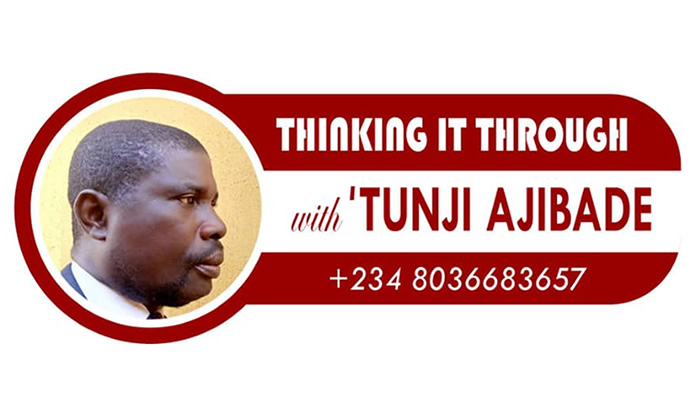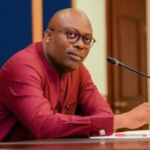
The link between a politician’s biological age and the quality of political leadership is raised in discussions across the world on a fairly regular basis. Even academics delve into it from time to time for, as they say, discussion purposes. When one of such was raised online in The Conversation not too long ago, I briefly made my view known that, for me, advanced years don’t negatively affect the quality of leadership any politician can offer. But the discourse about age remains constant, particularly online where some politicians and their fans make younger age their selling point in seeking elective offices.
This phenomenon was prevalent in the last election in Nigeria. Within the ruling party some presidential aspirants pushed their younger years as reason the younger voters should support them. There was another candidate in the opposition who was seen as ‘young’ in the same election and some argued in his favour on that basis. The same fixation about age has attended the recent presidential election in Senegal. Here, a 44-year-old man was elected and the buzz online was another round of comparison between the election outcomes in Senegal and Nigeria.
Ahead of the United States presidential election in November, there is a debate about the age of President Joe Biden and his rival, Donald Trump. There’s a seven-year difference in age between both men, which in my view means no difference once two people aren’t a decade apart in their date of birth. For me, the same situation applied in Nigeria during the 2023 election because the three leading presidential candidates were less than 10 years apart in age. The youngest was in his mid-60s. But one might not know this though due to the physical condition of the last. In fact, if he claimed to be 50 years old, one would believe him. This thus speaks to the difference between the advanced years of a politician and their physical condition.
Here, Trump is one example in terms of physical condition when compared to Biden who is just some six years older. But physical condition is not my main focus though it can matter; rather it is age- the link between it and the quality of political leadership as well as the formation of consensus. Is there really a link between a politician’s age and the quality of political leadership they offer? Why is consensus formation important? Is there a link between a politician’s age and the formation of consensus? My initial position is to state that the former is a relevant question in all polities, be it in advanced democracies or developing nations. The latter is a relevant question in a developing nation and a nascent democracy such as Nigeria. I shall explain in detail.
First, I turn my attention to quality leadership. What is quality or effective leadership? Generally, qualities of effective leadership include courage, strength, ability to communicate effectively, knowledge, judgment, integrity, and interpersonal skills. A particularly important quality is vision, along with the power to implement that vision. What has a leader’s age got to do with these? It’s one crux of this piece. But what makes for, specifically, quality political leadership? Now political leaders are vital. They, according to the Bangalore Political Action Committee, a political think tank, determine the allocation of power and money through governmental policies. Political leaders establish partnerships with other stakeholders, and they make decisions that can have a major effect on a nation’s well-being and its citizens.
Political leadership, BPAC further states, requires a leader to focus on a country’s long-term betterment above and beyond any short-term personal gains. Strong political leadership requires a mixture of charm and honesty, and the capacity to evaluate a circumstance and make a judgment based on what will be better for the majority. A successful leader has a visionary dream and understands how to turn his visions into success stories. In order to be successful in political leadership a politician needs to be a good communicator. They should be able to communicate vision clearly, capable of making the right decision at the right time, able to inspire others, as well as delegate tasks effectively. Such a politician is with a vision and purpose, a person who is able to establish valuable networks and expertise with other leaders.
As for the formation of consensus, I should give my operational definition first. The concept is, for me, the most important in this intervention. Incidentally, this is not the first time I make reference to how important the ability of a politician to engender consensus is in any polity, particularly in a developing nation such as Nigeria. I first called attention to the link between a politician’s age and the ability to form consensus when I pitched my tent with the aspirations of Asiwaju Bola Tinubu from May 2022, even long before he emerged as his party’s standard-bearer. I did my analysis at the time both on this page and in ElRufia News, an online news website. On both platforms, I was more focused on the complexity of Nigeria’s political landscape and how a politician of Asiwaju’s stature could make the formation of consensus easier. To me, this was important considering where we were at the time.
I was convinced that in a situation where the nation wasn’t moving ahead on important issues such as the formation of state police, decentralisation of electricity supply etc., a person such as Asiwaju with his kind of political clout would be relevant in getting all stakeholders to the table and broker solutions. Consensus. Formation of consensus. We needed someone whose age and experience as well as the bridges he has built could help the nation move forward on those issues. That’s my operational definition. Nonetheless, I should still ask the question: What is consensus? It is a general agreement. A consensus is a general agreement amongst a group of people. Here, it means everyone is on the same page.
Consensus is a general agreement about something, an idea, or opinion that is shared by all the people in a group. Consensus decision-making or consensus process is a group decision-making process in which participants develop and decide on proposals with the goal of achieving broad acceptance. This is important because the positive effects of consensus decision-making are what I have in mind in the effort to establish any link between a politician’s age and consensus formation. In consensus decision-making there is a focus on establishing agreement of at least the majority or the supermajority; avoiding unproductive opinion differentiates consensus from unanimity, which requires all participants to support a decision.
Consensus is not synonymous with unanimity – though that may be a rule agreed to in a specific decision-making process. Features of consensus may include collaboration. Here, participants contribute to a shared proposal and shape it into a decision that meets the concerns of all group members. Consensus may take the form of cooperation where participants in an effective consensus process strive to reach the best possible decision for the group and all of its members, rather than competing for personal preferences. Consensus is egalitarian as all members of a consensus decision-making body make equal input in the process. There is inclusion as all stakeholders are involved in the consensus decision-making process. And there is participation as the process actively solicits the input and participation of all decision-makers. Outcomes of the consensus process include better decisions; better implementation; and better group relationships.
Having explained the two important concepts, I move to discuss possible links between each and a politician’s age. Is age – advanced or young – important in the quality of leadership offered, the ability to form consensus, and ultimately the success of a politician in office? For clarity, I should state that the success of a political leader is a function of the challenges peculiar to each nation, so there can be no one-view-fits-all submission here as we sometimes see in most engagements. In addition, factors such as culture and religion in each nation may hugely influence the extent to which one can link young or old age to how successful a political leader can be. Stating this is important if this intervention must provide better clarity in the debate about the age of presidential candidates as found in both advanced and developing nations.





